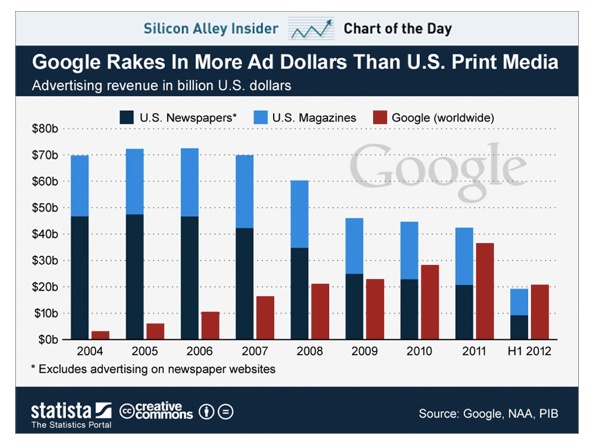The Washington Post has a new Editor, Martin Baron, formerly editor of the Boston Globe. Jack Shafer has an interesting column about what has happened to the Post — which in a way is just a more dramatic example of what has happened to the old city-monopoly newspapers.
Baron arrives at a paper much diminished from its salad days under Bradlee and Downie, when the Post was the leading mass-advertising vehicle in Washington and corpulent with profit. Under Bradlee’s and much of Downie’s tenures, the paper’s biggest problem was finding something to spend all that money on. It established domestic bureaus in New York, Chicago, Los Angeles, Austin, Denver, and Miami. It expanded its business pages into a freestanding section in the early 1990s. It created local bureaus to serve the suburbs that circle Washington, filled them with reporters and produced zoned editions. It experimented with new weekly sections covering consumer tech and lifestyle.
Today the domestic bureaus are gone, as are the suburban ones, and business coverage has been reduced to a couple of pages running in the A section. The tech and lifestyle weeklies are long gone. The $130 million College Park, Maryland, printing facility the Post built in 1999 was closed by 2009. It lost its free-standing book review. It killed comics, the chess and poker columns, and one crossword puzzle. In 2000 the paper had 800 print journalists and 100 in its digital newsroom. Last summer the total number of full-time journalists was down to about 600. (In hindsight, the journalistic innovation the Post should have pursued was the building out of a politics website, which Posties John Harris and Jim VandeHei proposed to the paper but ended up launching as Politico with a local TV station owner.) The Post has so wound down local coverage that ombudsman Patrick B. Pexton published a column last Sunday complaining about the paper’s skimpiness.




